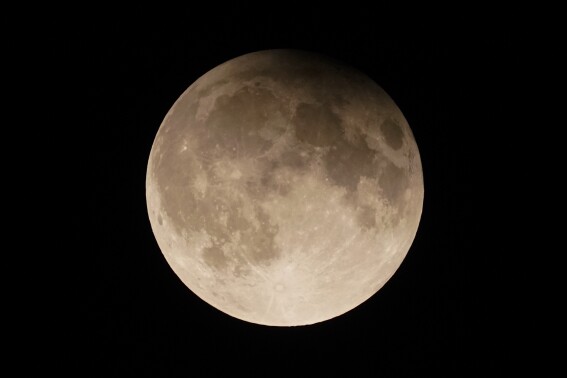When Amy Dishion received the unexpected news that her husband Evan had dropped dead from heatstroke on a hike outside Phoenix, Arizona, the only thing she can remember is being thankful she wasn't at that moment holding their 3-month-old daughter, Chloe. "I never experienced shock like that before," she told Newsweek.
Amy never imagined such a sudden and devastating fate was possible. Her husband was 32 when he died on September 5, 2022; he and Amy had moved to Phoenix from Salem, Oregon, a few years prior so that Evan, a neurologist, could do his residency at the Barrow Neurological Institute. While the Arizona summer heat was impossible to ignore when they first arrived, Amy said that with the recent addition of Chloe to their family, she and Evan had planned to stay in Phoenix as long as they needed to.
"I was a member of the Citizens' Climate Lobby. But it wasn't a focus of his until we had Chloe," she told Newsweek. "I remember him looking at me one day and saying, 'I didn't think much about climate change until now. I want our daughter to have a healthy planet to live on.'"
Often, discussions of climate change are cloaked in the language of heady science, mind-boggling statistics and hypothetical abstractions, and even informed and scientifically minded people can sometimes lose sight of the fact that the climate crisis is a current and ongoing event that has already taken a devastating and very real human toll.
Amy now lives with her late husband's relatives back in Oregon and has been picking up the pieces of her life since her husband was devastatingly and swiftly stolen from her two years ago.
During Climate Week, she traveled to New York to tell her story at an event hosted on Wednesday by Extreme Weather Survivors at the Tribeca Screening Room in Lower Manhattan. The event spotlighted Americans whose lives have been irreparably impacted by extreme heat, stronger and more frequent storms, and rising sea levels, which are more and more frequently impacting more and more people across the United States and the rest of the world.
"Science can help to uplift the stories and experiences that people are experiencing from climate change," Dr. Delta Merner, lead scientist for the science hub for climate litigation at the Union of Concerned Scientists, said at the event. "That's why I'm here today."
At Wednesday's discussion, Merner was joined by fellow experts like Chris Kocher, the nonprofit's co-executive director, and Richard Wiles, the president of the Center for Climate Integrity.
But unlike many other Climate Week events, these experts focused on the experiences of the diverse group of non-scientists who joined them onstage. These guests included, in addition to Dishion, Richard Joyner, a farmer and reverend from Conetoe, North Carolina, and Melissa Whittaker, a restaurant owner from Montpelier, Vermont, whose business was flooded and destroyed in 2023.
"Every time an extreme weather event occurs, human lives are affected in very harmful and traumatic ways. Lives are lost, people lose their housing and their businesses and livelihood," Whittaker told Newsweek.
The group's geographical and personal diversity highlighted the urgency and complexity of climate change's impacts on ordinary people.
Joyner spoke of the positive impact his small farm has had on both himself and his community at large. As a religious leader who is dedicated to improving the quality of food his community consumes, Joyner spoke about the harmonious relationship between his religious beliefs and appreciation for conservation. "We're looking at better ways of farming and different ways of growing food without endangering our climate," he told the crowd.
This past August, Hurricane Debby devastated a large area of the southeastern United States, including Edgecombe County, North Carolina, where Conetoe is located. Across the state, the storm wreaked havoc on people and property, with more than $20 million in damages and at least eight people killed due to the storm.
And now, this week, Hurricane Helene has ravaged Florida and is set to ravage many parts of the Southeast again.
"Understanding how people are experiencing the impact of climate change is such an important question to answer in my scientific research," Merner told Newsweek. She stressed the role that attribution science, which determines how much more likely climate change has made devastating weather events, can play in holding companies and other entities responsible for exacerbating climate stressors or causing damage to people and places.
"Attribution science can explain how a heatwave is hotter or a flood more intense. It can help quantify how climate change is making people experience things," she told Newsweek. "In general, attribution science answers the question, 'Did climate change play a role in that?'"
Almost a decade ago, a researcher estimated that just 90 companies are responsible for emitting the vast majority of greenhouse gases and, therefore, causing most of the negative effects associated with man-made climate change. Still, efforts aimed at getting major fossil fuel companies to pay for or even claim responsibility for the climate crisis have yet to succeed.
Wiles of the Center for Climate Integrity said that fossil fuel companies are pulling strategies from the same playbook Big Tobacco used in the 1990s before the 1998 Master Settlement Agreement in which the industry paid out $206 billion and change the way they marketed cigarettes going forward. "They lied about it to make the science appear uncertain," Wiles said. "Just like Big Oil."
However, the scientists on the panel noted that two states, Vermont and New York, are currently trying to create the sort of framework needed to hold accountable those companies that have significantly contributed to the ongoing climate crisis.
The Vermont Senate passed S.259, a bill establishing a Vermont Climate Superfund, on April 2; Vermont Gov. Phil Scott allowed S.259 to pass into law without his signature on May 30. New York's State Assembly, meanwhile, passed its own Climate Change Superfund Act on June 8, but New York Gov. Kathy Hochul still hasn't signed the bill into law despite pressure from her fellow Democrats. "It's been a long time, and we're not really winning, but this gives me hope," Wiles said.
Kocher of Extreme Weather Survivors told Newsweek that he considers the group's inaugural conference a success. "Our goal yesterday was to hear stories about people living through extreme weather, and from that regard it was very impactful," he said.
Despite the pain and trauma she and her daughter have been through, Amy Dishion counts her lucky stars that she is someone who has supportive in-laws and has found community and connection in groups like Extreme Weather Survivors.
But even though her husband Evan will never be able to help his patients or find a cure for Alzheimer's as he had dreamed, Amy was emphatic about making sure her late husband's legacy is never reduced to a statistic in Earth's climate crisis.
"I want people to hear this story and make sound decisions when enjoying nature and thinking about the heat," she told Newsweek. "I want people to think about their safety."
Disclaimer: The copyright of this article belongs to the original author. Reposting this article is solely for the purpose of information dissemination and does not constitute any investment advice. If there is any infringement, please contact us immediately. We will make corrections or deletions as necessary. Thank you.



